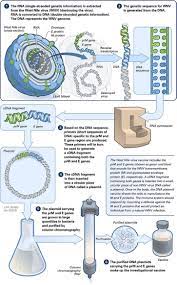CURRENT AFFAIRS
Get the most updated and recent current affair content on Padhaikaro.com
The DNA Vaccine
- Vaid's ICS, Lucknow
- 02, Oct 2021

Why in News:
- The experts have recently said that DNA vaccine technique can be applied in making of cancer related vaccine.
What is DNA vaccine?
A type of vaccine that transfects a specific antigen DNA-coding sequence onto the cells of an immunized species is known as DNA Vaccine.
They are also known as third-generation vaccines
- DNA vaccine has a theoretical advantage in comparison to the other conventional vaccines
- These vaccines are yet not completely appropriate for human use and can only be used for animal species
- These vaccines contain DNA that codes for specific proteins (antigens) from a pathogen.
Advantages of DNA Vaccine”
- The immune response focused on the antigen of interest
- Cost-effective
- Less risk for infection
- Antigen presentation by MHC class I and class II molecules
- Long-term persistence of immunogen
Limitations of DNA Vaccine:
- Risk of affecting genes controlling cell growth
- Possibility of tolerance to the antigen
- Potential for atypical processing of bacterial and parasite proteins
- Limited to protein immunogens
Facts for Prelims:
Scrub Typhus:
- Also known as bush typhus, scrub typhus is a disease caused by bacteria called ‘Orientia tstsugamushi‘, which was formerly ‘Rickettsia’.
- It typically spread to people through the bites of infected chiggers or larval mites.
6-APA
6-APA is an abbreviation used for the name of the chemical compound-6-aminopenicillanic acid. In 1958, Beecham scientists from Brockham Park, Surrey, found a way to obtain 6-APA from penicillin. Other β-lactam antibiotics could then be synthesized by attaching various side-chains to the nucleus.
